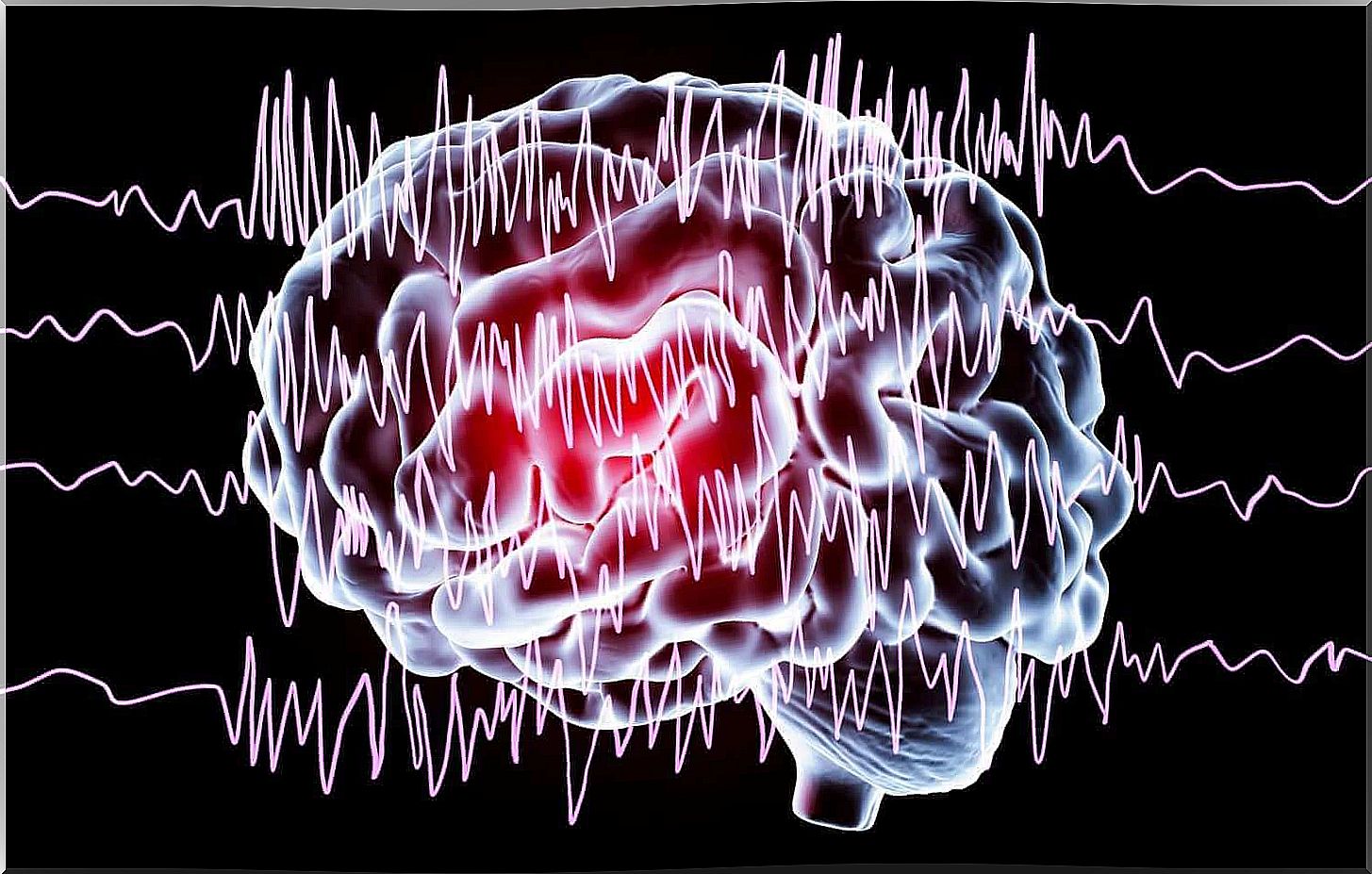Effects Of Interrupted Sleep: More Dangerous Than Little Sleep

The effects of interrupted sleep can be more harmful than little sleep. How can this be true? To give you an idea, let’s remember the nights when, for whatever reasons, it was impossible to maintain a continuous sleep without any awakening. The next day, not only do we find ourselves more drained, but bad mood, apathy and lack of motivation are constant.
Sleep disorders are more common than we think and more serious than we think. Night awakenings are like fractures in the dream tissue and in the normal sleep cycle. As we well know, these stages of sleep follow specific schedules and times, and breaking them completely affects the balance of the brain and other metabolic processes carried out by the body.
Sleeping well is living better. It is essential, therefore, to pay attention to our sleep at night and seek the tools that are within our reach to facilitate this rest, this biological need that not only influences physical health but also affects psychological well-being.

What are the effects of interrupted sleep?
The effects of interrupted sleep are many, and in general this is something that couples who have just had children know well, as do those who work shifts. Thus, when talking about the quality of night rest, the number of hours we sleep is as important as its continuity, or the ability to avoid its interruption.
Frequent awakenings are a form of insomnia and therefore a sleep disorder. In other words, someone can go to bed at 11 pm and go to sleep immediately, but if, over the next 8 hours, he wakes up 20 times, this rest will not be healthy, much less restorative. This is a reality that thousands of people suffer from.
Let’s see what are the consequences of facing this problem.
Less slow waves in the brain, more discouragement and risk of depression
Suffering from interrupted sleep for three days in a row would be enough to begin to feel a reduction of optimism in our mood. This is what a study at the Johns Hopkins University in Baltimore, United States reveals to us. Patrick Finan, professor of psychiatry and research director, explains the following:
- Disruption of sleep is more damaging to our mood than lack of sleep.
- When sleep is interrupted during the night, the sleep stages change.
- This phenomenon makes it impossible to progress from non-REM sleep to the fifth essential step for the body and brain, the REM phase.
- These changes decrease the number of slow waves that occur in the brain.
- The reduction of these waves is related to an increased risk of suffering from disorders such as depression.
Memory impairments and long-term cognitive problems
The effects of interrupted sleep can be dangerous, especially if this problem extends over time. Studies such as the one carried out in the sleep and cognition department of the Netherlands Institute of Neurosciences revealed, for example, that one of the most common consequences is memory failure.
- The structure of sleep and its cycles are essential for the correct consolidation of each learning, of each thing seen, felt, experienced…
- Through the slow waves and after the REM phase, we integrate all these facts into declarative memory (long-term) and consolidate them correctly.
- Another of the effects of interrupted sleep are problems with concentration and difficulty in making decisions. This poor quality night rest slows down our reactions and our ability to respond to life’s problems.
Also, there is another important fact. If someone suffers from this problem for several years, there is a greater risk of ending up with cognitive deficits. Almost without realizing it, we will be left with a more fragile brain, with fewer neuronal connections and with a greater risk of suffering from degenerative disorders such as Alzheimer’s.
Effects of Interrupted Sleep: Migraines
Sleep disorders sustained for weeks or months can cause headaches. This is, without a doubt, something we’ve all experienced at some point. That classic morning tiredness after a bad night’s sleep can gradually turn into migraines.
We know that when the brain does not reach the REM stage, one of its most common effects is the emergence of these very uncomfortable conditions. A study in the Department of Neurology at the University of California linked the problem of interrupted sleep to the emergence of migraines. The cause would be a genetic mutation.
These are, without a doubt, aspects of great interest that science is trying to unravel.

How can we treat these nocturnal awakenings?
Sleep disruptions often have some trigger behind them that we should be aware of. It’s important to go to the doctor if you notice that your rest isn’t restorative, that you wake up more tired than when you went to sleep, and that you’re experiencing headaches, memory problems, etc.
It is known that the restless legs syndrome and sleep apnea are linked to these nocturnal awakenings. Another factor associated with this reality is undoubtedly stress. So before turning to sleep medications, let’s understand what the cause of the problem is and address its triggers.
In some cases, taking care of our lifestyle habits and reducing the use of technology for two hours before going to bed helps us to fall asleep more calmly, so that little by little we can sleep uninterruptedly.









